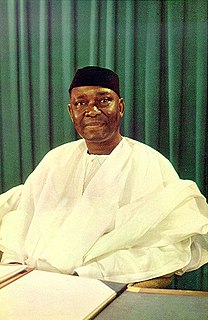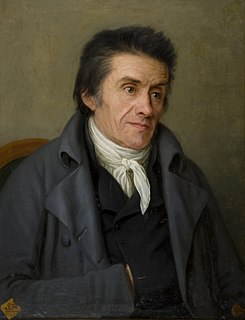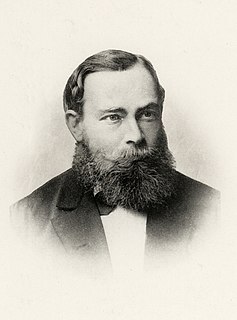A Quote by Ludwik Fleck
The individual within the collective is never, or hardly ever, conscious of the prevailing thought style, which almost always exerts an absolutely compulsive force upon his thinking and with which it is not possible to be at variance.
Related Quotes
It is possible that an individual may be successful, largely because he conserves all his powers for individual achievement and does not put any of his energy into the training which will give him the ability to act with others. The individual acts promptly, and we are dazzled by his success while only dimly conscious of the inadequacy of his code.
The philosopher Descartes believed he had found the most fundamental truth when he made his famous statement: "I think, therefore I am." He had, in fact, given expression to the most basic error: to equate thinking with Being and identity with thinking. The compulsive thinker, which means almost everyone, lives in a state of apparent separateness, in an insanely complex world of continuous problems and conflict, a world that reflects the ever-increasing fragmentation of the mind.
Human life in common is only made possible when a majority comes together which is stronger than any separate individual and which remains united against all separate individuals. The power of this community is then set up as right in opposition to the power of the individual, which is condemned as brute force.
Notice that whenever we suffer pain, the mind is always quick to identify with the negative aspects of things and replay them over and over again, wounding us deeply. Almost all humans have Obsessive Compulsive Disorder (OCD) of the mind, which is why so many people become fearful, hate-filled, and wrapped around their negative commentaries. This pattern must be recognized early and definitively. Peace of mind is actually an oxymoron. When you're in your mind, you're hardly ever at peace, and when you're at peace, you're never only in your mind.
Thinking leads man to knowledge. He may see and hear, and read and learn, as much as he please; he will never know any of it, except that which he has thought over, that which by thinking he has made the property of his mind. Is it then saying too much if I say, that man by thinking only becomes truly man? Take away thought from man's life, and what remains?
To every man, in his acquaintance with a new art, there comes a moment when that which before was meaningless first lifts, as it were, one corner of the curtain that hides its mystery, and reveals, in a burst of delight which later and fuller understanding can hardly ever equal, one glimpse of the indefinite possibilities within.
Compared with the person who is conscious of his despair, the despairing individual who is ignorant of his despair is simply a negativity further away from the truth and deliverance. . . . Yet ignorance is so far from breaking the despair or changing despair to nondespairing that it can in fact be the most dangerous form of despair. . . . An individual is furthest from being conscious of himself as spirit when he is ignorant of being in despair. But precisely this-not to be conscious of oneself as spirit-is despair, which is spiritlessness. . . .
Which are the people who have influenced us most? Not the ones who thought they did, but those who had not the remotest notion that they were influencing us. In the Christian life, the implicit is never conscious, if it is conscious it ceases to have this unaffected loveliness which is the characteristic of the touch of Jesus. We always know when Jesus is at work because He produces in the commonplace something that is inspiring.
The writer, like a swimmer caught by an undertow, is borne in an unexpected direction. He is carried to a subject which has awaited him--a subject sometimes no part of his conscious plan. Reality, the reality of sensation, has accumulated where it was least sought. To write is to be captured--captured by some experience to which one may have given hardly a thought.
It is possible, of course, to operate with figures mechanically, just as it is possible to speak like a parrot: but that hardly deserves the names of thought. It only becomes possible at all after the mathematical notation has, as a result of genuine thought, been so developed that it does the thinking for us, so to speak.
When you break up the individuals from a community into individual units, they become disempowered because it's the collective consciousness and the collective energy of the group from which power comes. The principal driving force that lies before us is that we have to recognize the nature of community as the evolutionary step that we just took a step backwards from in the last century.

































